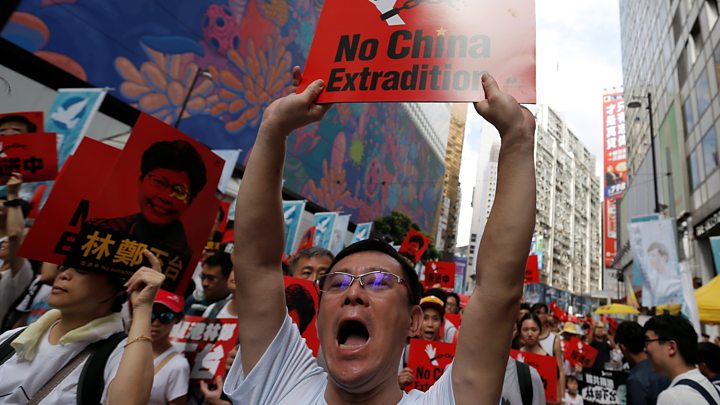Protests in Hong Kong have resulted in violence, as a man was shot in the chest at a rally on China Day Tuesday, Oct. 1.
According to a report from The Guardians, “violent protests broke out across Hong Kong, overshadowing celebrations in Beijing” on the 70th anniversary of the Chinese Communist Party rule.
“The protests began when Hong Kong’s government introduced an Extradition Bill that would allow it to detain and transfer ‘criminals’ who are wanted in other territories that currently do not have formal extradition agreements with the city,” Mandarin Chinese and Sociology professor Hongyou Lu said. “This law was seen as largely unfair and unlawful as critics are concerned that the Hong Kong government will use it to detain and transfer anyone unliked by the Beijing government.”
Lu went on to explain that more than a quarter of Hong Kong residents came out to protest the government’s new law. “When [high school] students come out to protest, when people from across the occupation spectrum come out to protest, there is something wrong and very concerning,” she said.
Though citizens continue their protests, they have made progress over the course of these disputes. The Hong Kong government indefinitely suspended the law to begin with; however, as of September, the government has “formally withdrawn” the Extradition Bill according to Hong Kong’s leader Carrie Lam. This may have lead to a decrease in protests, but, as evident by the acts of China day, they still have not stopped.
The Hong Kong protesters are now speaking out against more than just the one law that its government tried to pass. According to Lu, citizens are asking for the release and the dropping of charges for arrested protestors, an end to referring to their protests as riots and an inquiry into the city’s police force and their tactics.
“Looking even further, Hong Kong protests also are concerned about the expiration date of the ‘one country two systems’ that was initiated in 1997, as promised for 50 years. People are concerned that after 2047, what would happen to Hong Kong?” Hongyou said. This system ensures that Hong Kong can have an independent economy and government while also being apart of the “one China.” Its expiration could change the relationship of Hong Kong and mainland China significantly.
With the people’s requests still unresolved, protests and violence continue.
Headline photo: Chinese citizens protest in Hong Kong. Photo from BBC.

